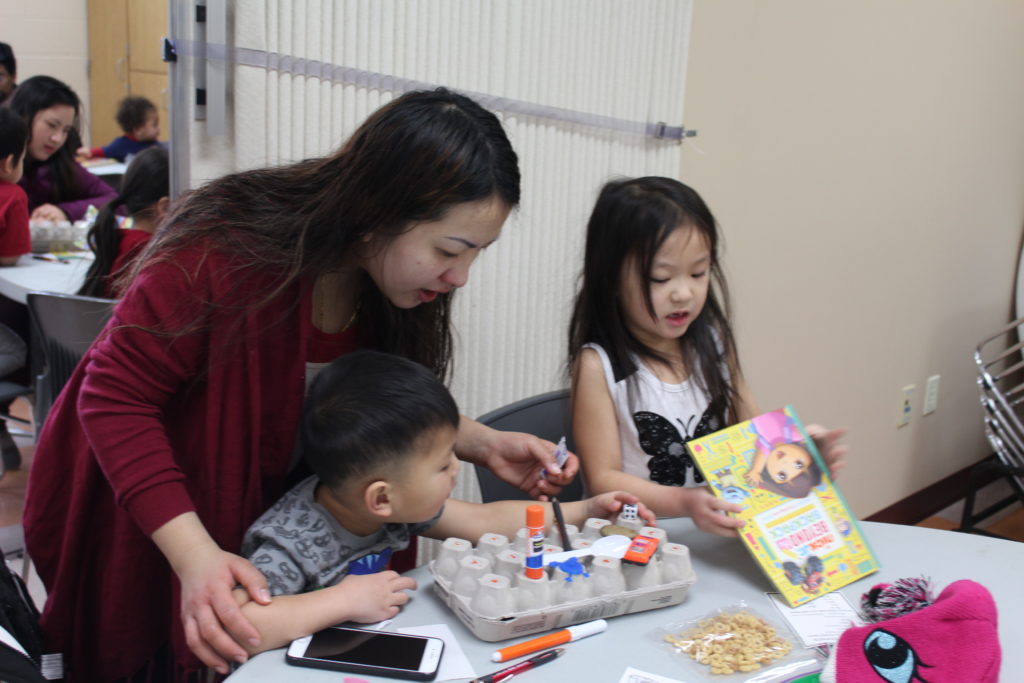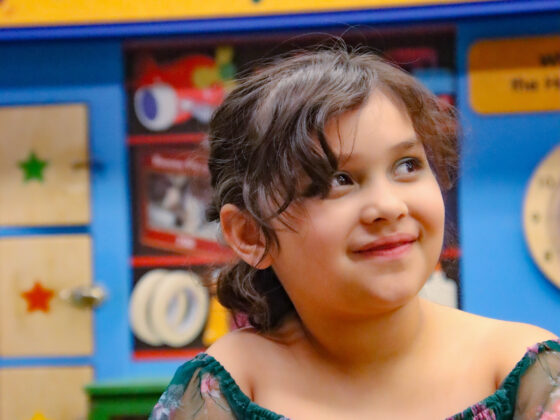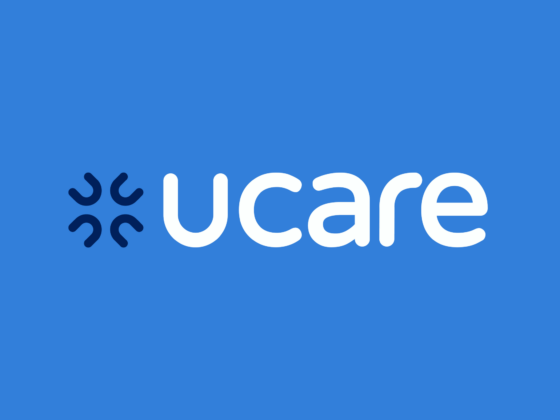“Welcome to today’s class! Is everyone ready to get started?” Head Teacher Eka Nagoya is ready to start a Parent-Child class at Way to Grow’s Preschool Pals center in North Minneapolis, and his enthusiasm is contagious.
In addition to its home visiting program that served nearly 1,500 children and 761 families last year, Way to Grow has two NAEYC-accredited center-based preschools, where 50 students are enrolled.
“Our parent-child preschool classes are a really unique model,” explained Ashley Saupp, Way to Grow’s Manager of Education. “In addition to attending preschool four days a week, all of the children enrolled in our preschools also receive home visits from our Family Educators. Once a month, we bring the parents into the classroom to participate in learning activities with their children, alongside our teachers and Family Educators. This holistic approach helps the parents understand how and what the children are learning in school— and to take that learning back home.”
Today’s class focuses on early literacy skills.
Mr. Eka passes an activity bag to each family. Parents and children will be playing brief 5-minute games that focus on such skills as letter identification, letter sounds, rhyming, and alliteration. Each activity bag contains items that could be found in any home—an empty egg carton, a spoon, a stone, or a small toy car, just to name a few.
“Turn the egg carton over and write the first letter of every item in your activity bag on the underside of the egg carton,” Eka explains. “Have your child pick and item, name it, and identify the letter of the alphabet it begins with. Now, have your child find the letter on the bottom of the egg carton. OK, Moms and Dads, I want to see you play!”
The next game focuses on rhyming sounds.
“Find the picture card with the blue border,” says Eka. He points at a picture of the moon on the card. “Can anyone tell me what in your bag rhymes with this?”
“Spoon!” A little girl shouts from the back of the room, proudly waving a spoon from her bag in the air.
These are the kinds of games parents can play with their children at home using common household objects—or, when the weather gets warmer, outdoors in the park or playground. Families who don’t have the financial resources for high-priced educational toys can still create fun games to play with their children that boost their literacy skills.
“The kids really don’t care what they are playing with,” says Ashley. “What really matters is that it’s fun, and engaging, and that their parents are interacting with them.”





